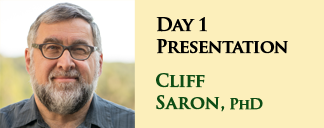Clifford Saron, PhD, Research Scientist, UC Davis Center for Mind and Brain.
Francisco Varela, in a 1984 interview stated that “science, in its core, its active living core, is pure contemplation. It has little or nothing to do with manipulation.” In 2017, the wisdom of engaging in contemplative practice is pervasively promoted as justified by scientific evidence of its benefits. Yet this evidence is often weak, taken out of context and interpreted in oversimple fashion beyond what the data actually show. This state of affairs is laden with implicit scientific hegemony that discourages rigorous methodological scrutiny and the relevance of personal understanding. One correction for this emerging instrumentalist narrative of better living through all things mindful may be to focus on what we cannot know using our current research tools that we can know through our lived experience. This includes integrating the concerns and methods of other disciplines within the sciences and humanities into our own professional identities and scholarship. I will use examples from our research on intensive meditation in retreat contexts and an initial foray into the building of a transdisciplinary model of aspects of cognition that may be impacted by styles of Buddhist meditation to explore the challenges in implementing research that begins to approach adequacy in light of the critiques aired throughout this Institute.
360 Video Login required
